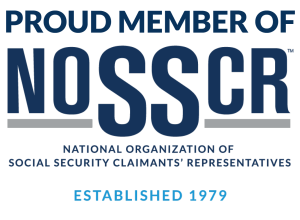Marijuana and Your Disability Case
Marijuana use for medicinal purposes is becoming more common, and many people applying for disability use it regularly. However, this may interfere with getting approved for disability, depending on each individual situation.
Social Security Disability operates under federal law where marijuana is still considered an illegal substance. Because of this, marijuana use is generally not viewed favorably. Social Security experts and judges will evaluate each case to see whether marijuana (or any other illegal drugs and alcohol) are a contributing factor to disabling conditions. Specifically, would the disabling conditions persist or be as severe if drugs or alcohol were not used? If they suspect that marijuana is worsening a disabling condition, then benefits will usually be denied.
It is difficult to get benefits for someone who uses marijuana if some of their disabling conditions include the following symptoms, which the Mayo Clinic states can sometimes be caused by marijuana use:
- Nausea
- Headache
- Dizziness
- Drowsiness
- Fatigue
- Paranoid thinking
- A disconnected state (dissociation)
- Worsened manic symptoms in someone with bipolar disorder
- Worsened depression in someone who has depression
- Psychosis in someone with schizophrenia
- Cannabinoid hyperemesis syndrome (cyclical vomiting, delayed gastric emptying). See https://www.ncbi.nlm.nih.gov/pmc/articles/PMC3576702/.
See: https://www.mayoclinic.org/drugs-supplements-marijuana/art-20364974.
Claimants who are using marijuana are less likely to negatively affect their chances for disability if:
- Their marijuana use is known, approved of, and supervised by a doctor who also treats their disabling conditions.
- There was a documented extended period without marijuana use when symptoms were no better.
- They have a physical condition that is known to not be worsened marijuana use.
- They do not have mental health issues.
As always, it is important to be up-front about marijuana use (or any other drug or alcohol use) with your doctor and your attorney so they can advise you.
